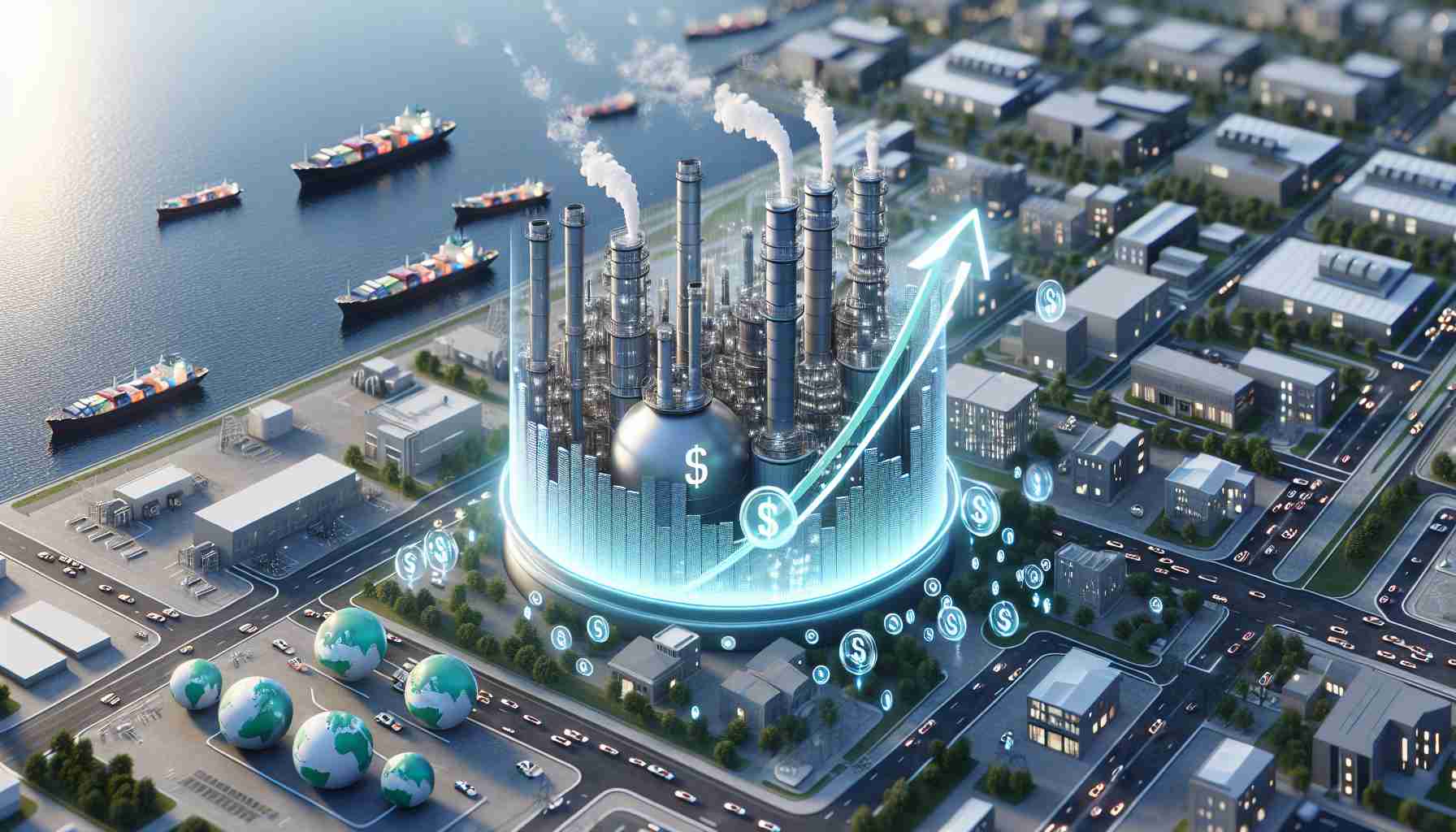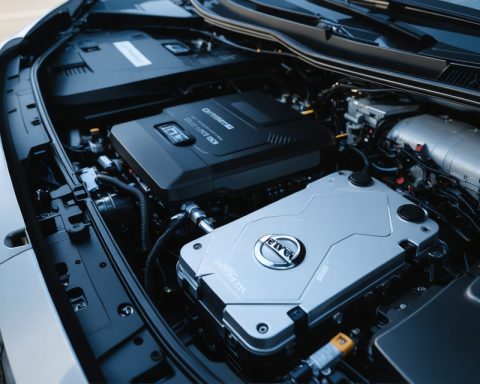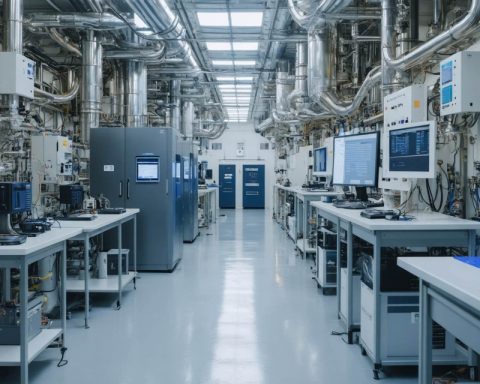Transforming Transportation in Texas
In a groundbreaking move, the Port of Houston Authority has secured nearly $25 million in grant funding from the Department of Transportation and the Federal Highway Administration. This financial injection, awarded on January 10, is set to revolutionize heavy-duty vehicle refueling in the region.
The funds will be directed toward the development of a hydrogen fueling station, courtesy of a collaboration among Port Houston, Linde Inc., GTI Energy, Argonne National Laboratory, and the Centre for Houston’s Future. The Bayport Hydrogen Refueling Station (HRS) aims to establish a comprehensive hydrogen pipeline-based fueling system that is both accessible and efficient, facilitating growth in Texas’s supply chain.
Linde, a leading hydrogen producer, will lead the construction and operation of this efficient facility in Bayport, Texas. The port’s leadership emphasizes that this strategic alliance with Linde aligns perfectly with their commitment to community and environmental sustainability.
Industry experts believe that the Bayport HRS serves as a vital step towards integrating hydrogen fuel into heavy-duty trucking, potentially reducing emissions significantly. With the current shift towards low-carbon solutions, this initiative could accelerate the adoption of cleaner transportation methods across the Gulf Coast.
In 2024, Port Houston demonstrated impressive performance, handling 3.79 million TEUs, earning it the distinction of being among the top five US ports. This new venture promises to put Houston at the forefront of sustainable transport solutions.
Implications of Hydrogen Fueling in Texas
The establishment of the Bayport Hydrogen Refueling Station (HRS) represents more than just a localized upgrade to the Port of Houston; it signifies a transformative shift in the way society perceives logistics and energy. As Texas positions itself as a leader in hydrogen fuel infrastructure, this initiative could foster economic diversification beyond traditional oil and gas industries. The adoption of hydrogen technology is projected to create jobs in manufacturing, engineering, and maintenance, potentially generating thousands of new employment opportunities for residents.
Moreover, the environmental significance of this shift cannot be overstated. Hydrogen fuel is recognized as a clean alternative to fossil fuels, emitting only water vapor when consumed in fuel cells. This innovation could drastically reduce greenhouse gas emissions from the heavy-duty trucking sector, which has historically been a significant contributor to air pollution and climate change. As major cities struggle with air quality issues, the Bayport HRS may serve as a beacon for other regions grappling with similar challenges, spurring a nationwide trend toward hydrogen adoption.
Looking ahead, as global markets embrace sustainability, Texas’s early investment in hydrogen infrastructure positions it strategically within the future economy. With the automotive industry increasingly pivoting to electric and hydrogen-based solutions, the implications of this initiative stretch far beyond immediate locality. The Bayport HRS not only enhances the resilience of the Texas supply chain but also underscores a greater commitment to sustainable economic practices relevant to a global audience.
Revolutionizing Heavy-Duty Transportation: Texas Leads the Way with Hydrogen Fueling
Transforming Transportation in Texas
The state of Texas is on the brink of a significant transformation in heavy-duty transportation, thanks to a substantial investment aimed at enhancing hydrogen refueling technologies. In January 2024, the Port of Houston Authority announced that it had secured nearly $25 million in grant funding from the Department of Transportation and the Federal Highway Administration. This funding will pave the way for the establishment of a state-of-the-art hydrogen fueling station, poised to revolutionize the transportation landscape in the region.
Key Features of the Bayport Hydrogen Refueling Station (HRS)
1. Collaborative Development: The Bayport Hydrogen Refueling Station is a result of a collaborative effort involving leading organizations such as Port Houston, Linde Inc., GTI Energy, Argonne National Laboratory, and the Centre for Houston’s Future. This collaboration is designed to ensure that the facility is equipped with cutting-edge technology and operational efficiency.
2. Sustainability Focus: The initiative emphasizes community and environmental sustainability. By integrating hydrogen fuel into heavy-duty trucking, the project aims to significantly reduce greenhouse gas emissions, thereby contributing to the global fight against climate change.
3. Economic Impact: With a vision to create a comprehensive hydrogen pipeline-based fueling system, the project is expected to boost the local economy by fostering growth in the Texas supply chain and creating jobs within the renewable energy sector.
Pros and Cons of the Hydrogen Initiative
Pros:
– Reduction in Emissions: Transitioning to hydrogen fuel can lead to lower emissions from heavy-duty vehicles.
– Technological Advancement: The facility is a step towards modernizing the transportation sector with clean energy solutions.
– Increased Accessibility: A well-established hydrogen refueling infrastructure will make sustainable transport methods more accessible to logistics and supply chains.
Cons:
– Infrastructure Costs: The initial investment for hydrogen infrastructure development can be significant.
– Market Uncertainty: As with any new technology, the market acceptance of hydrogen as a fuel source remains to be fully tested.
– Limited Fuel Availability: The establishment of a comprehensive refueling network will take time and effort.
Insights and Predictions
Industry experts predict that the Bayport HRS will accelerate the adoption of hydrogen fuel in heavy-duty trucking along the Gulf Coast. As more trucking companies look for low-carbon solutions, the support from the government and strategic partnerships will be crucial in overcoming any challenges associated with this transition.
Comparisons with Other Fuels
Compared to traditional fossil fuels, hydrogen fuel has several advantages:
– Environmental Impact: Hydrogen vehicles emit only water vapor, unlike diesel and gasoline engines, which emit carbon dioxide and other pollutants.
– Energy Efficiency: Hydrogen fuel cells convert chemical energy directly into electrical energy, leading to higher efficiency rates compared to combustion engines.
Market Analysis and Trends
The transportation sector is witnessing a paradigm shift towards sustainability, and the success of the Bayport Hydrogen Refueling Station could set a benchmark for other regions in the U.S. and beyond. As demand for cleaner fuels increases, investments in hydrogen technology are expected to grow, making it a viable option for future transportation strategies.
For more information about the hydrogen fuel initiative and developments in transportation technology, visit Port Houston.










